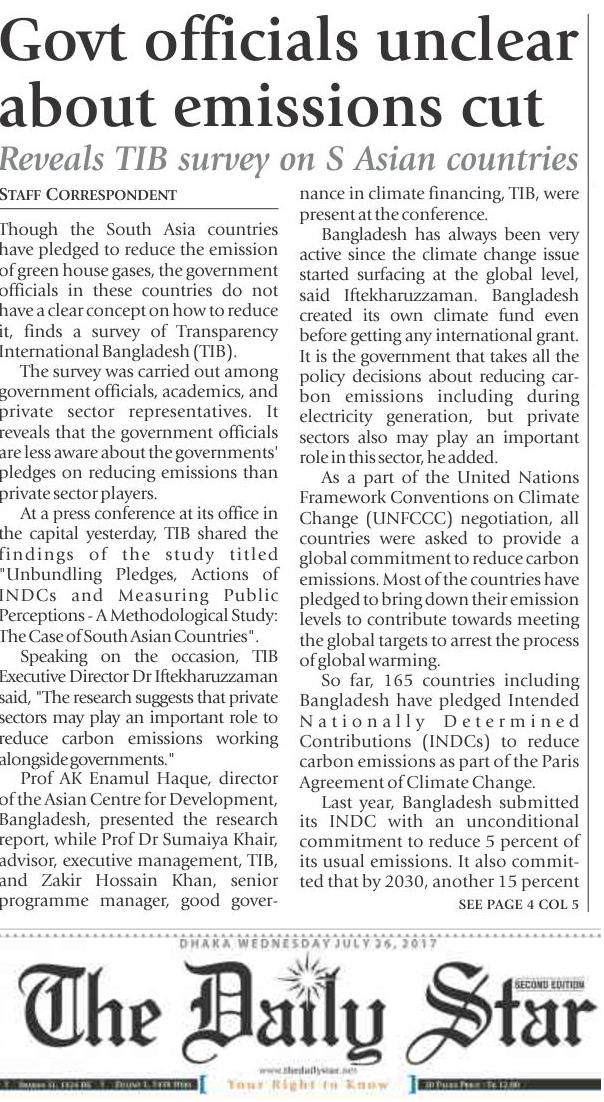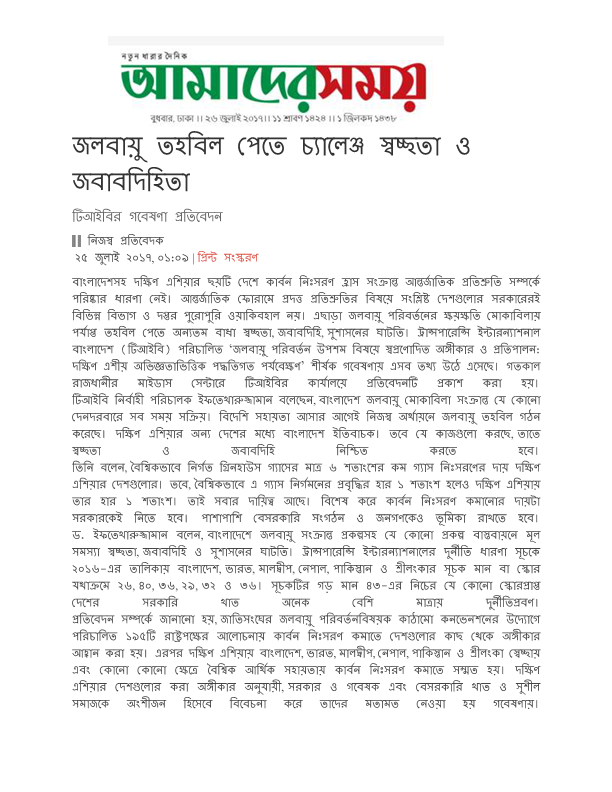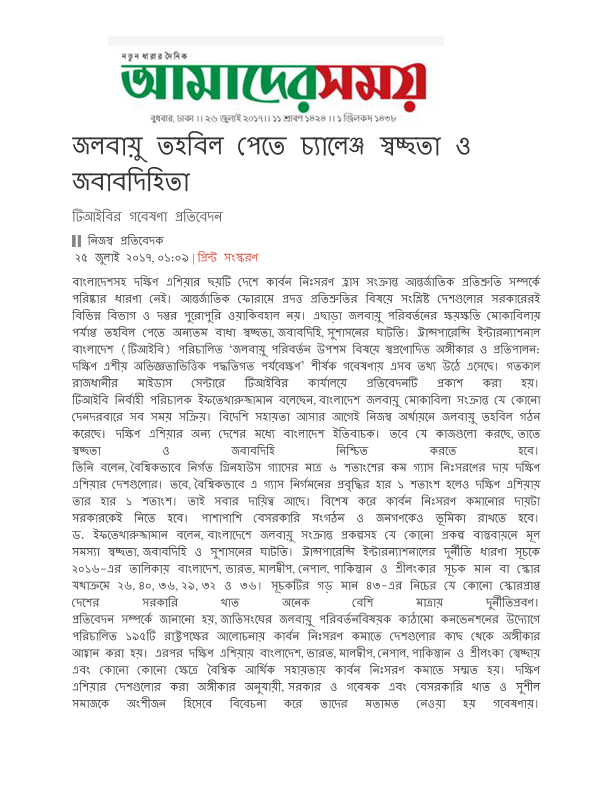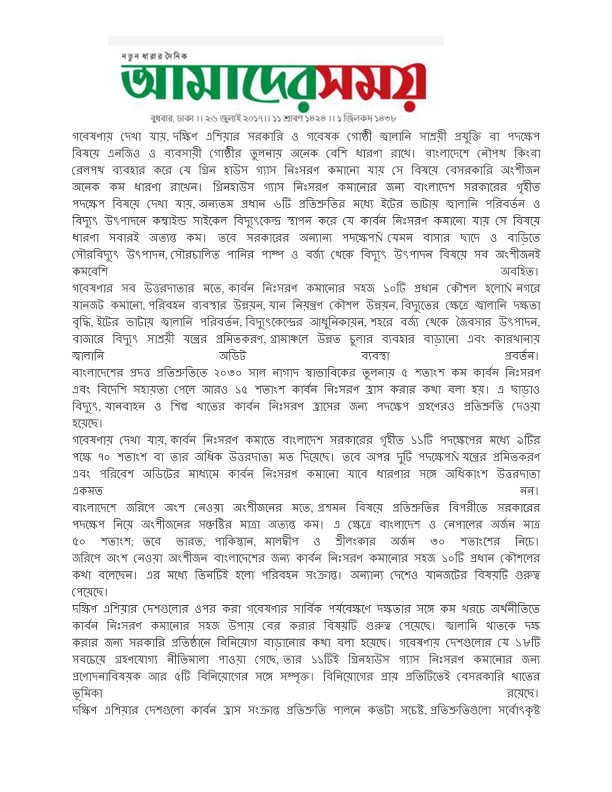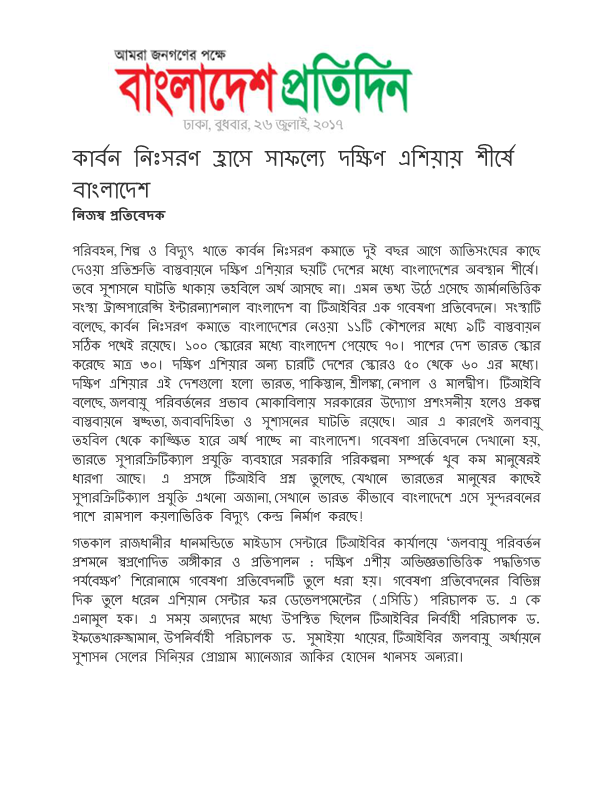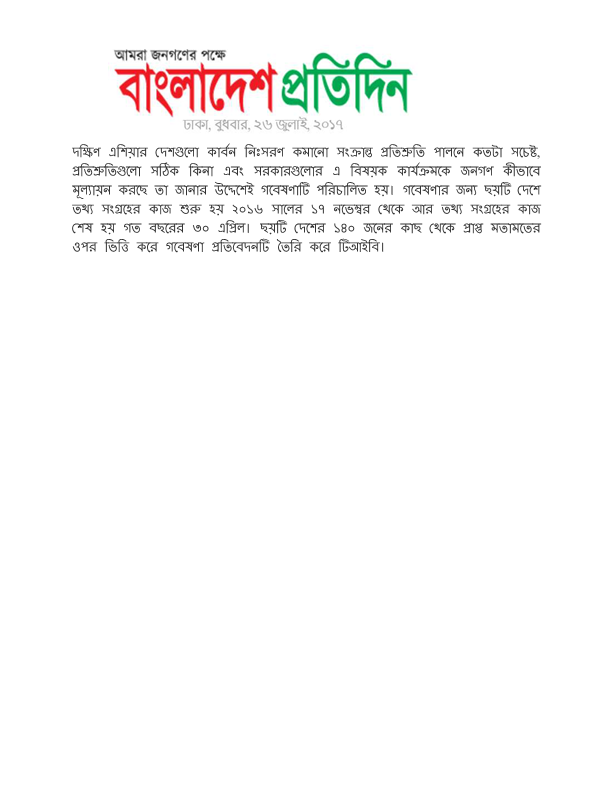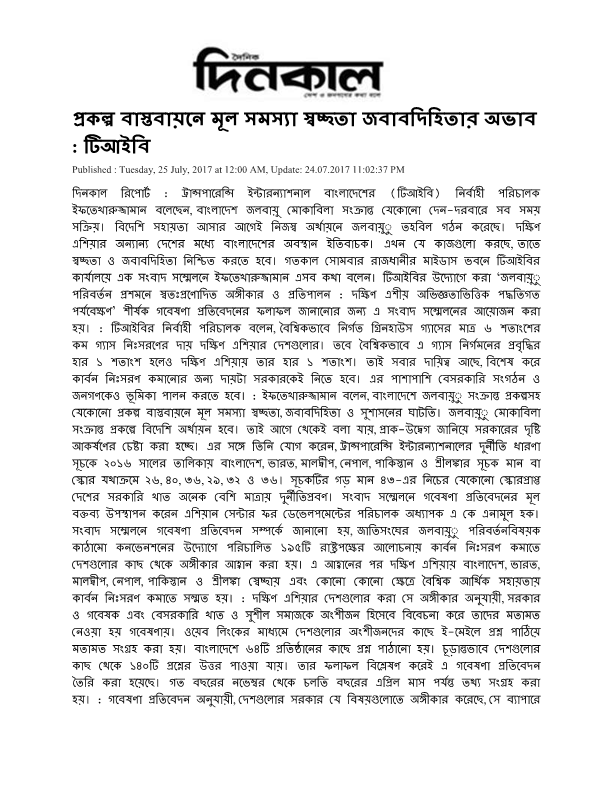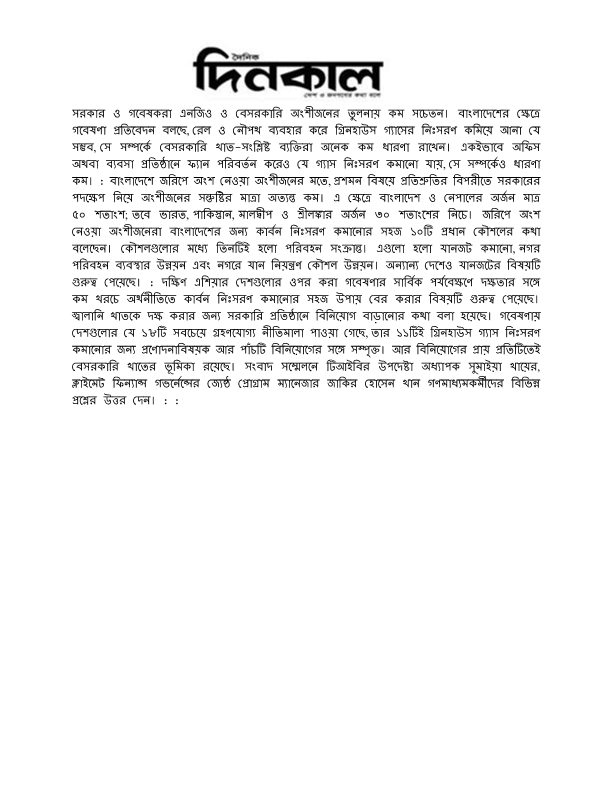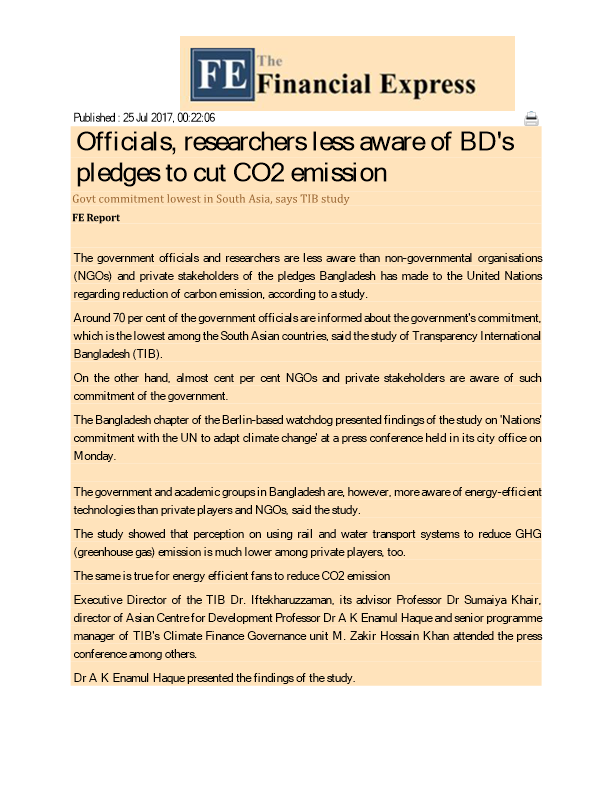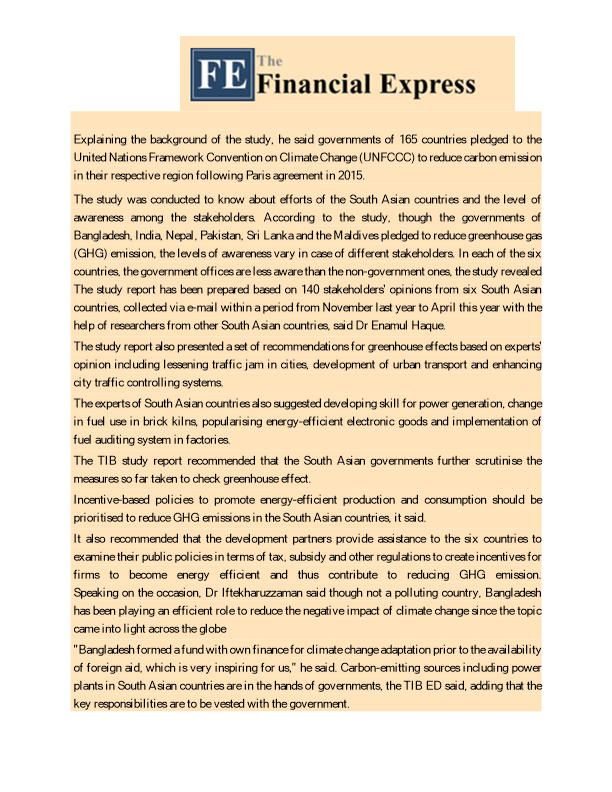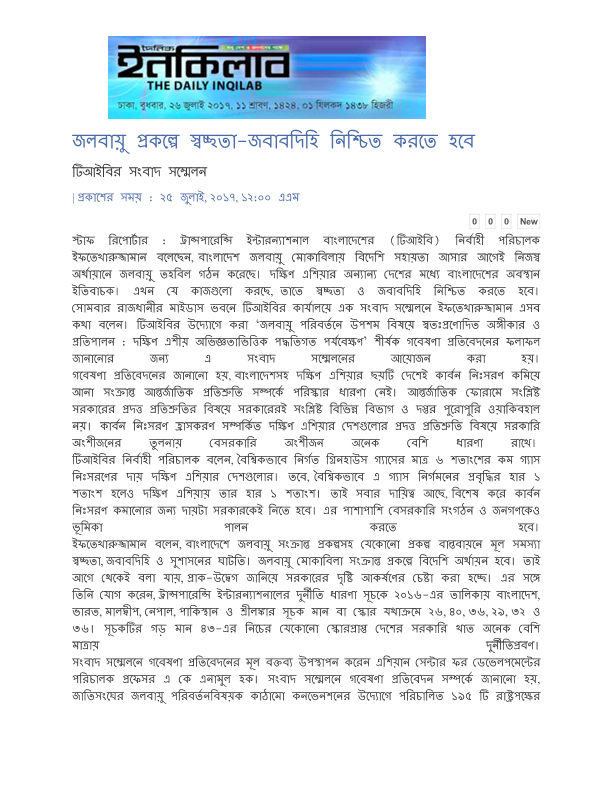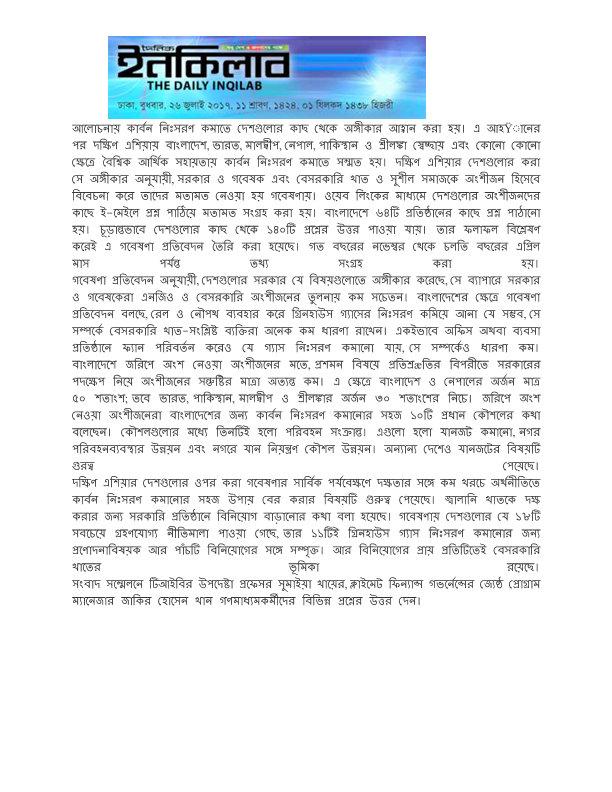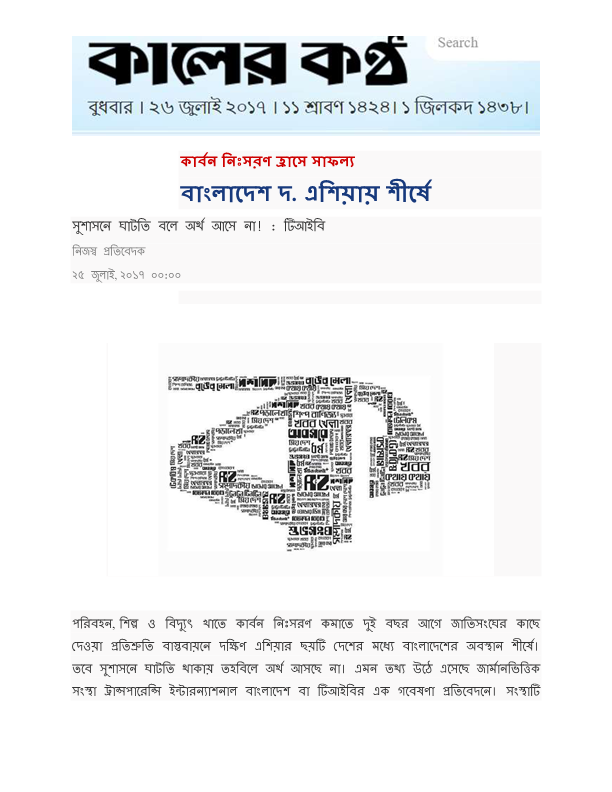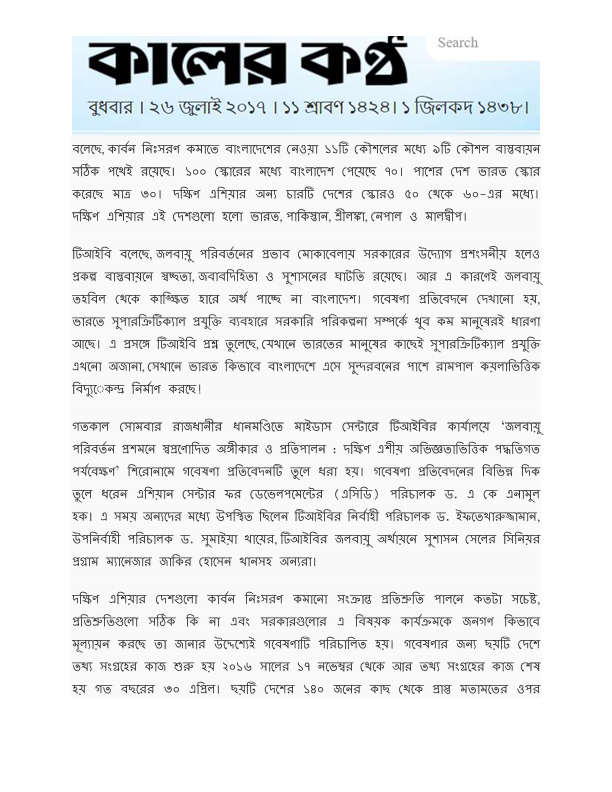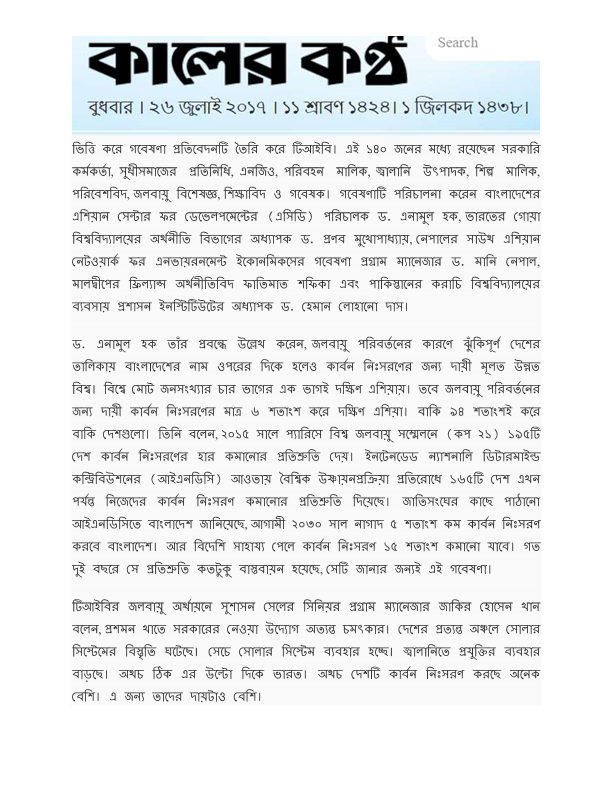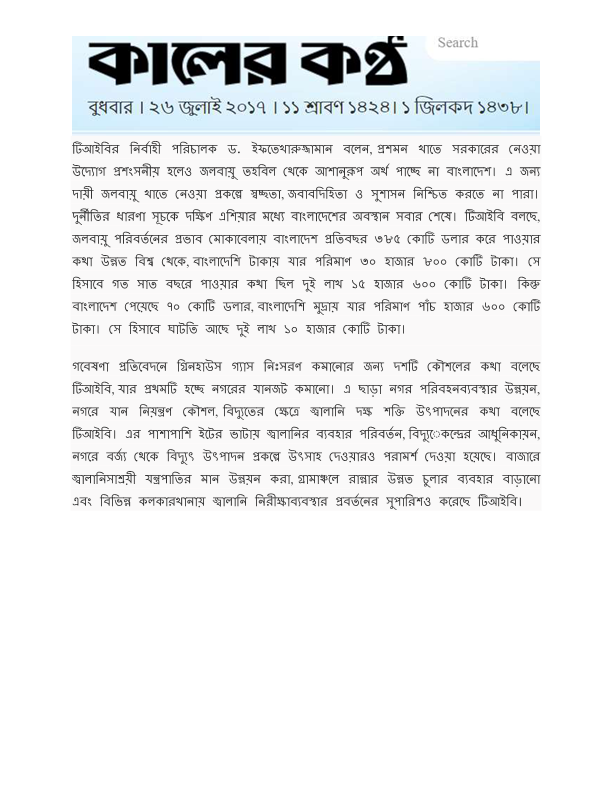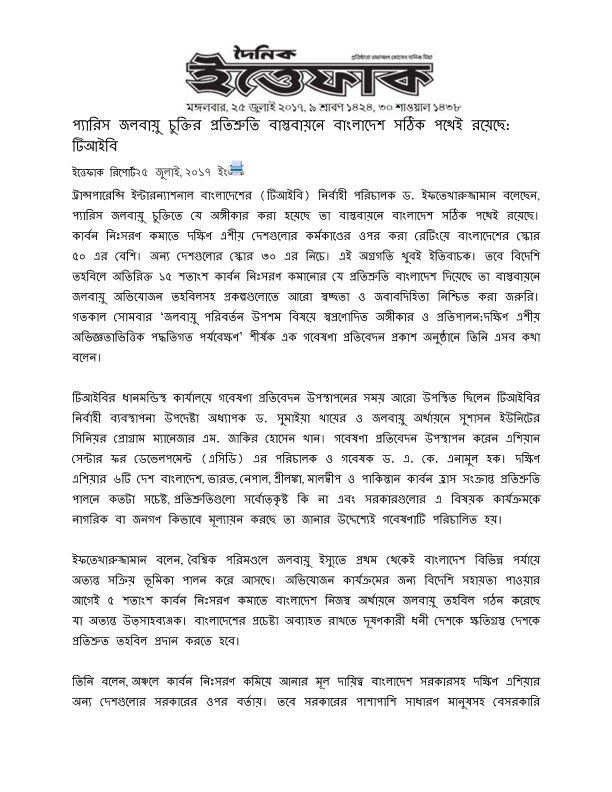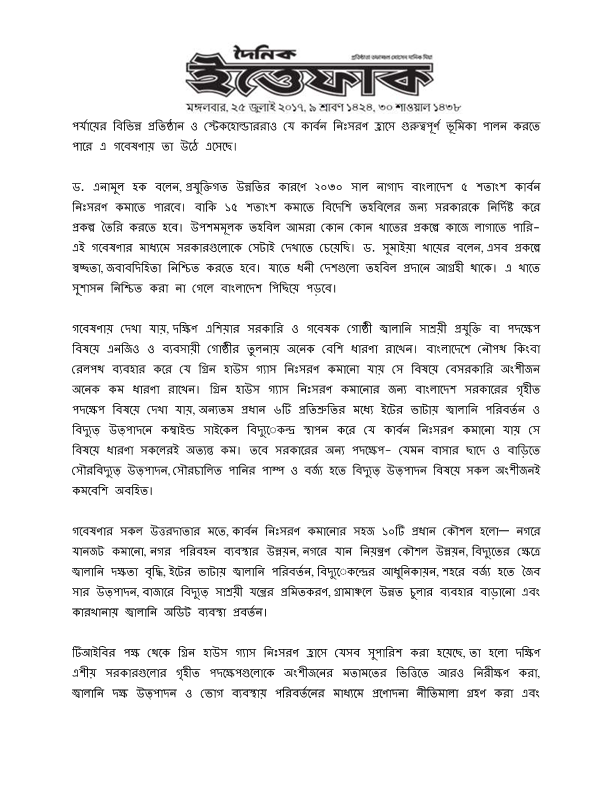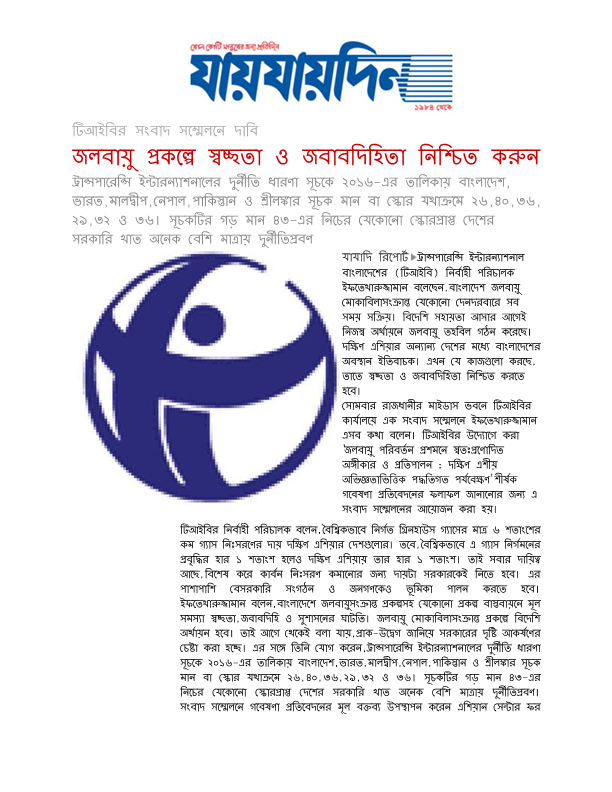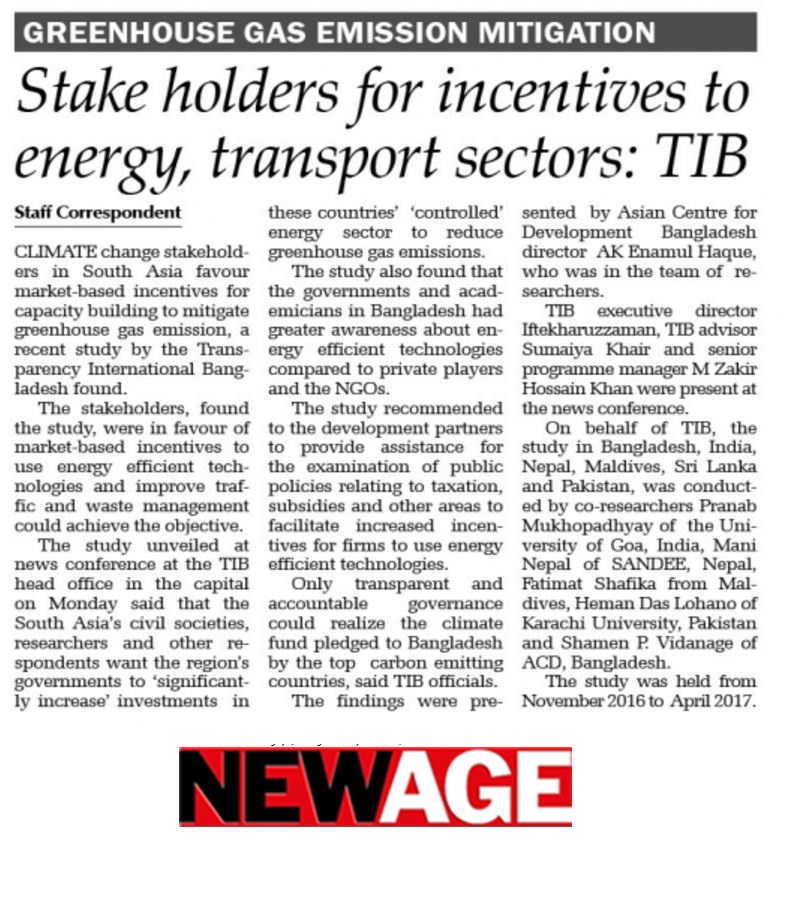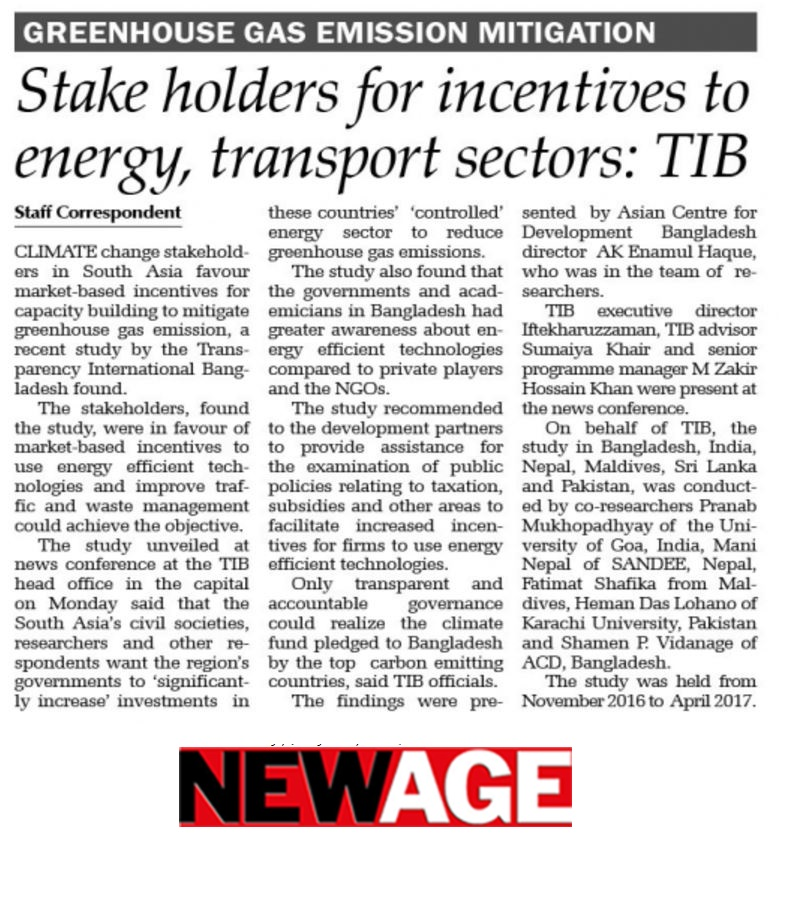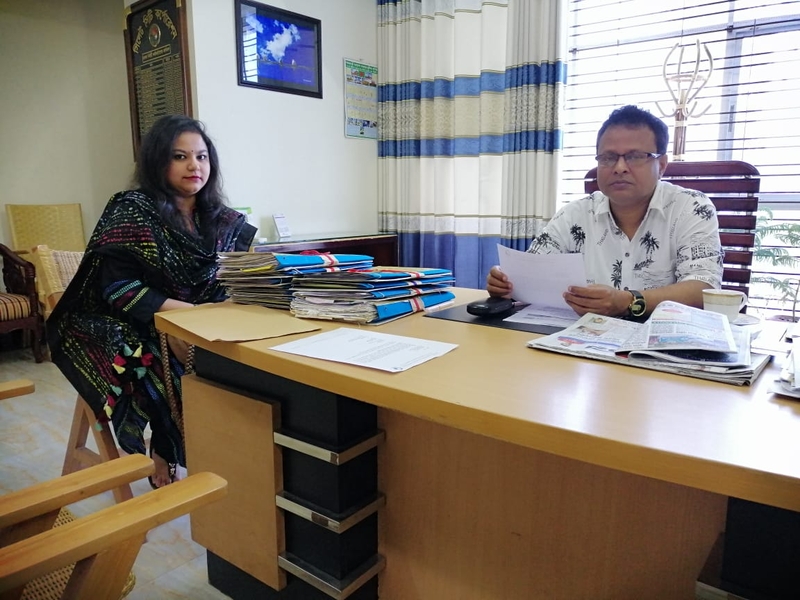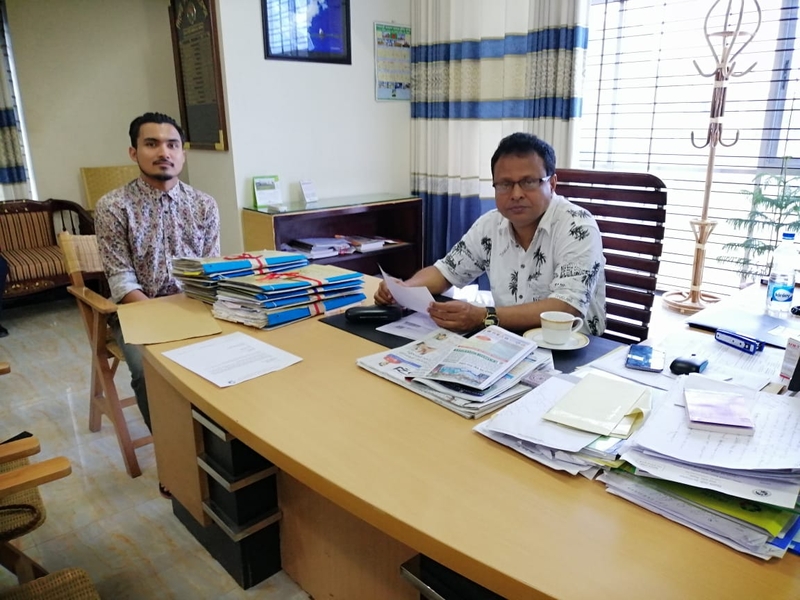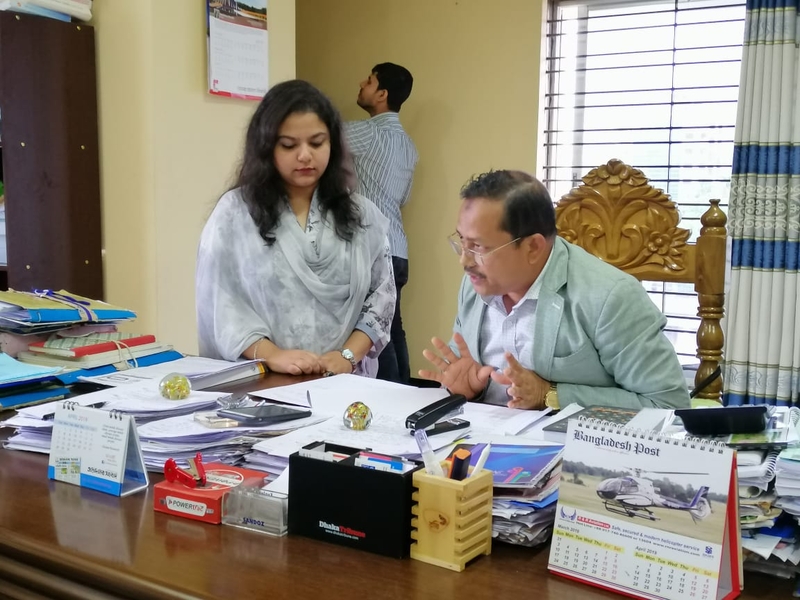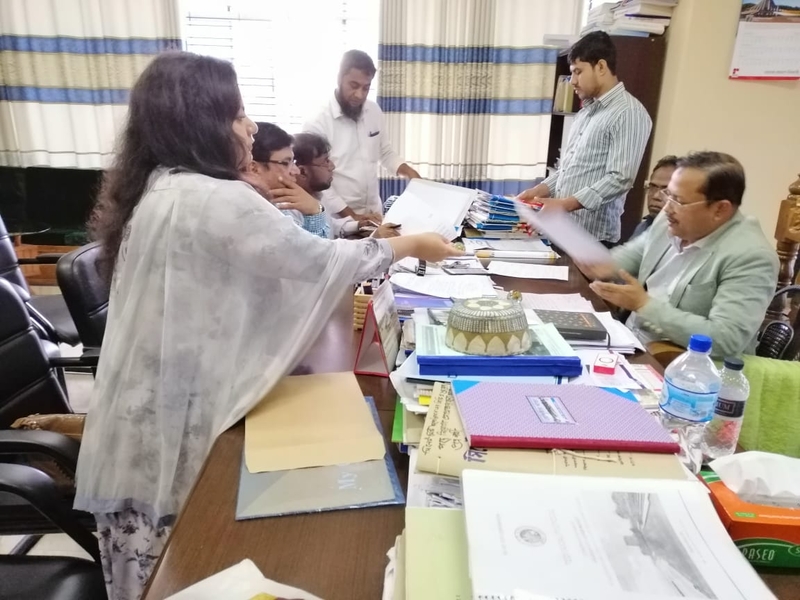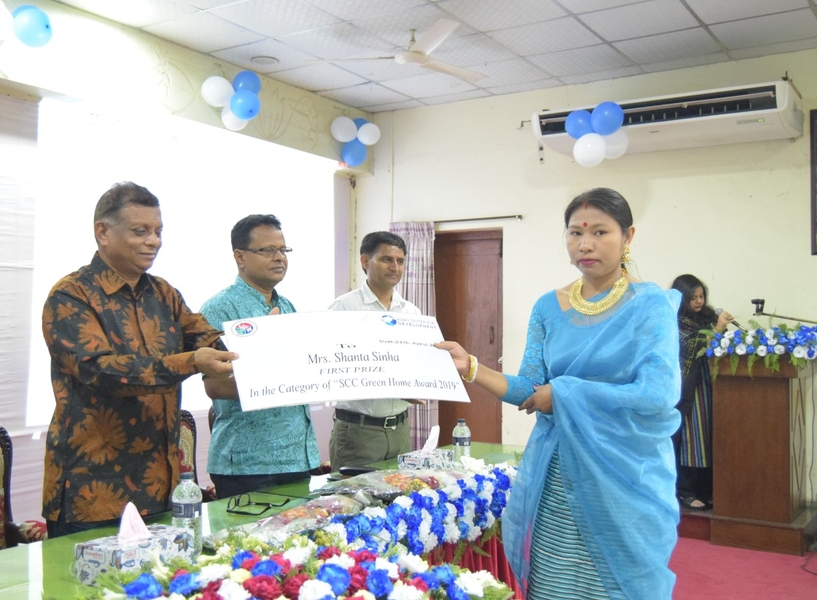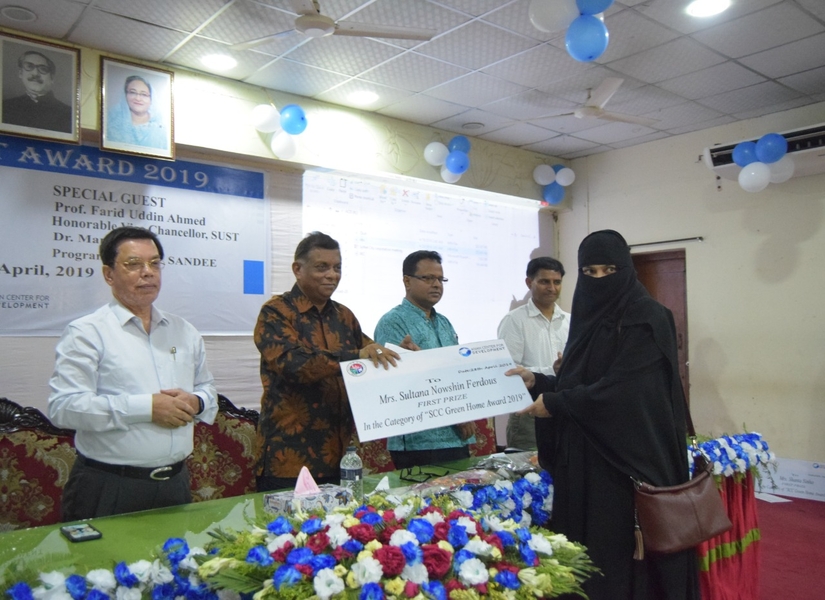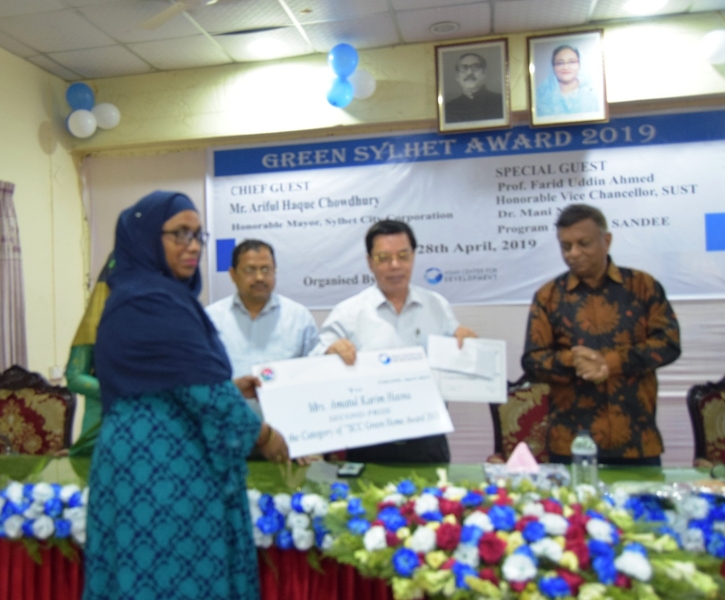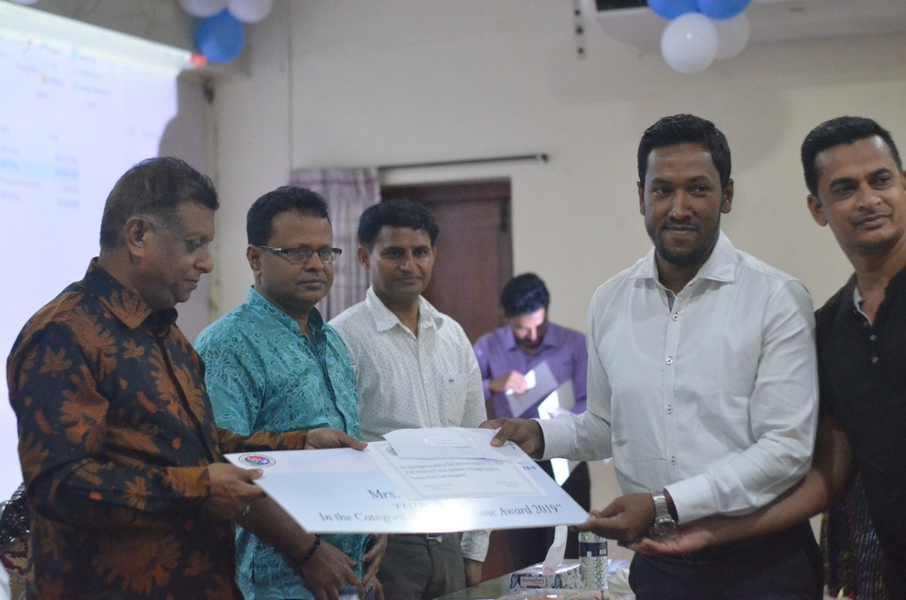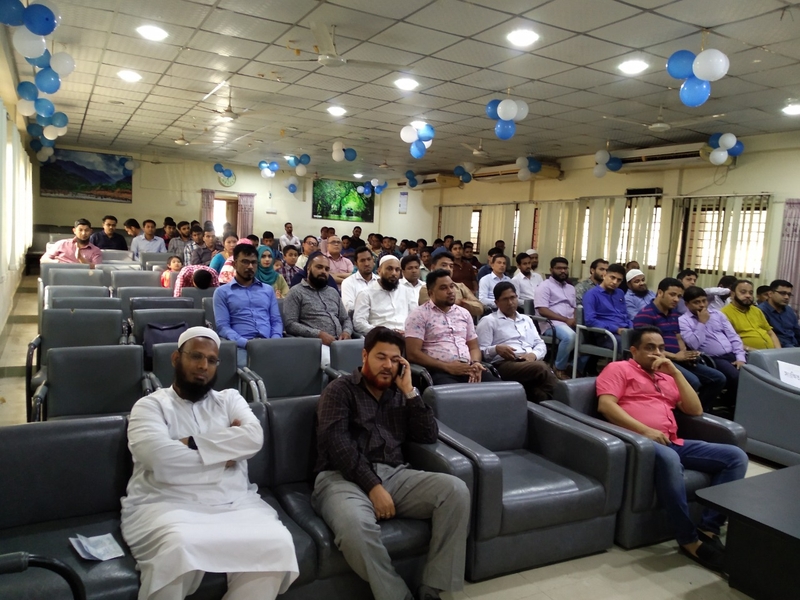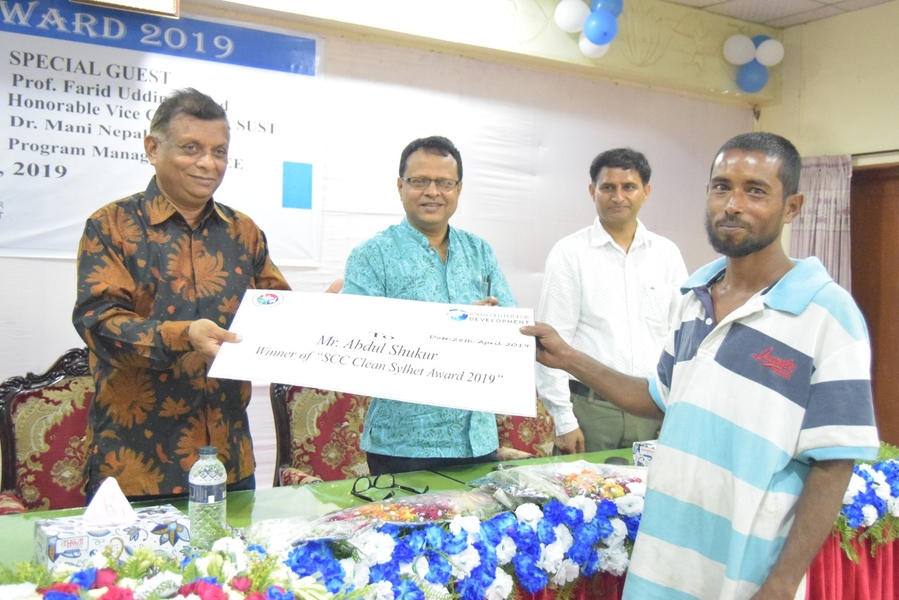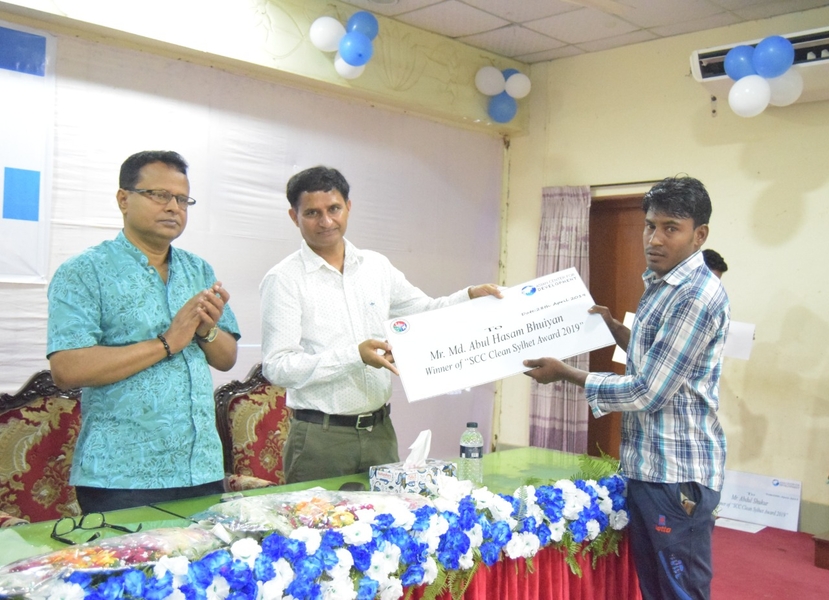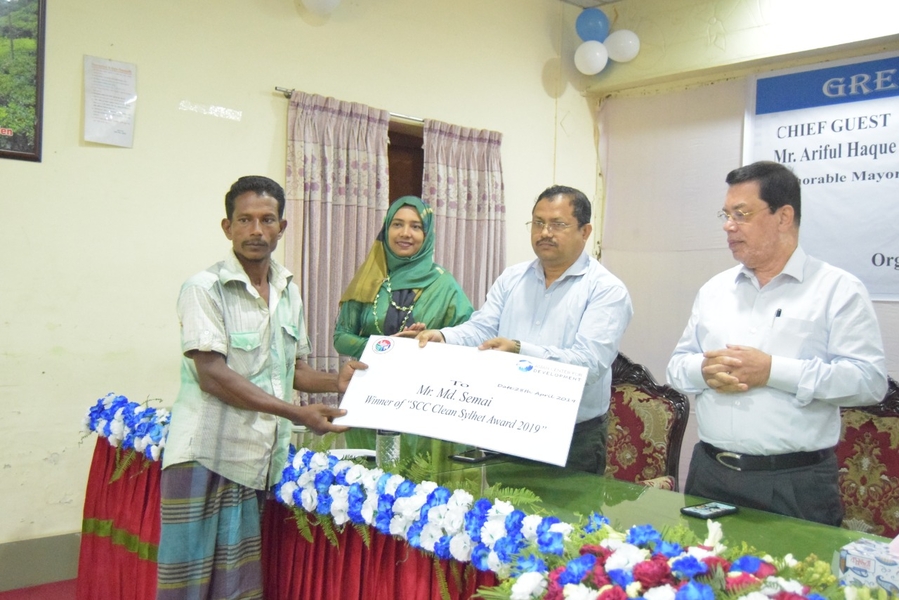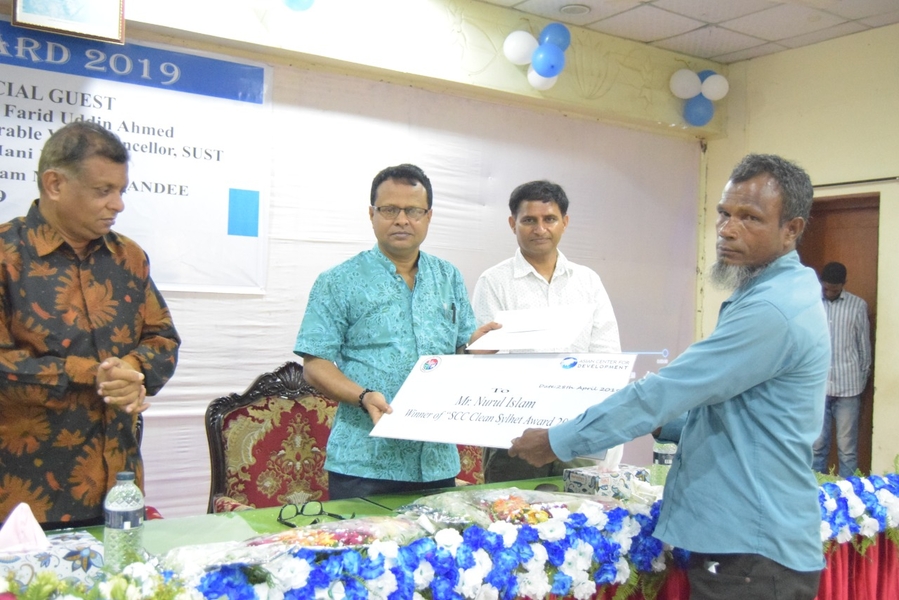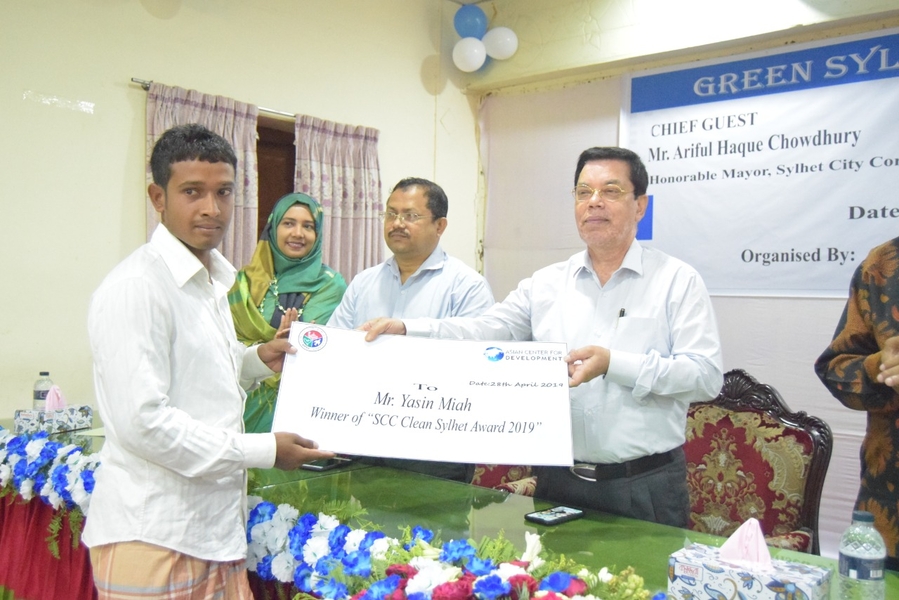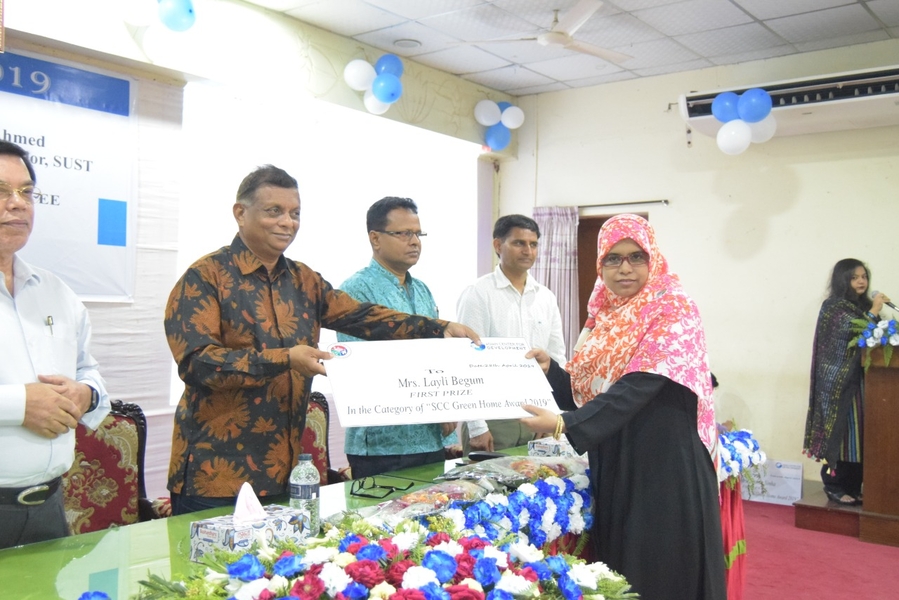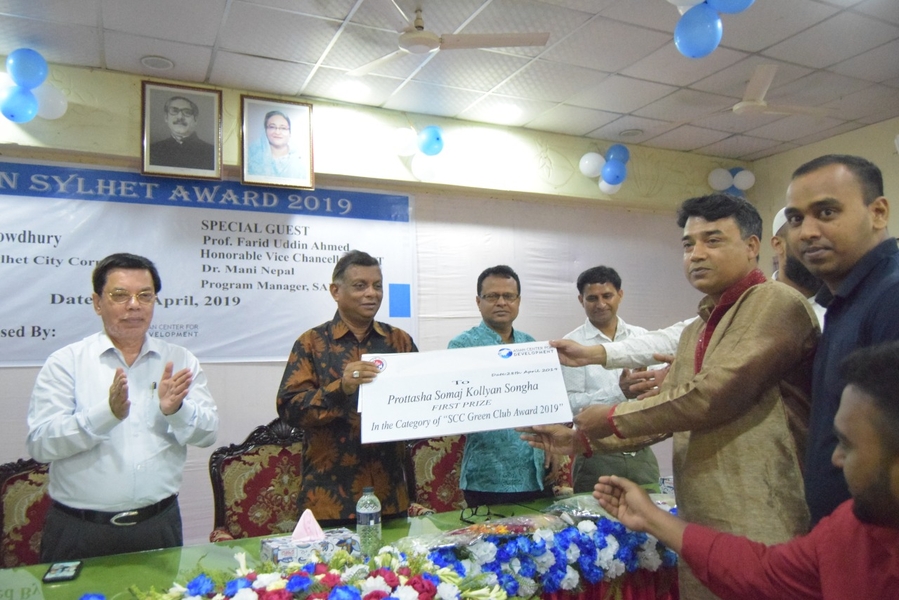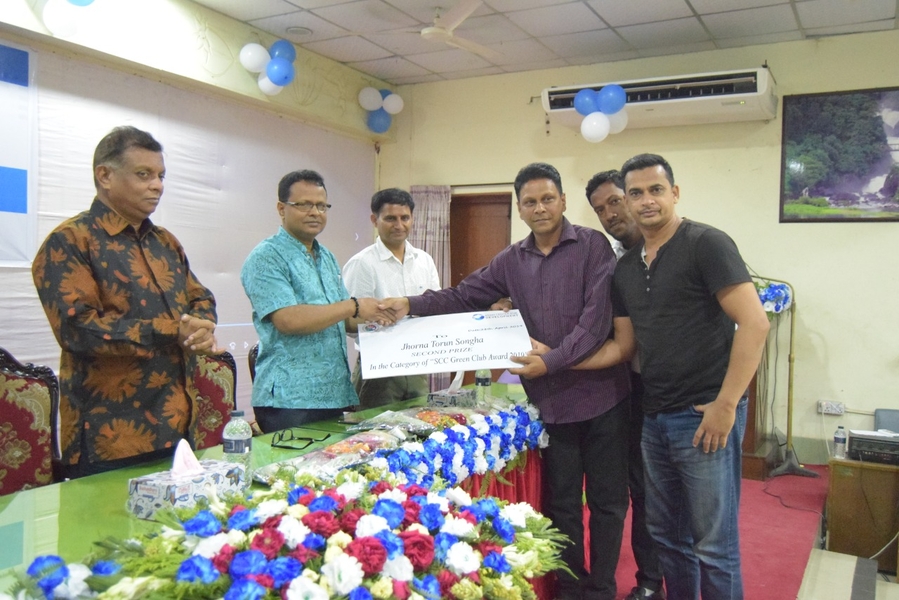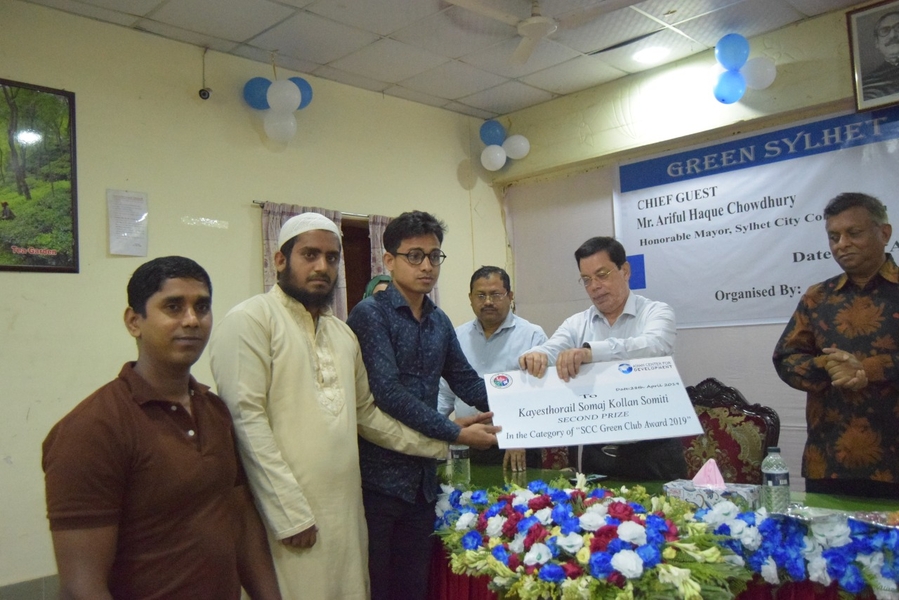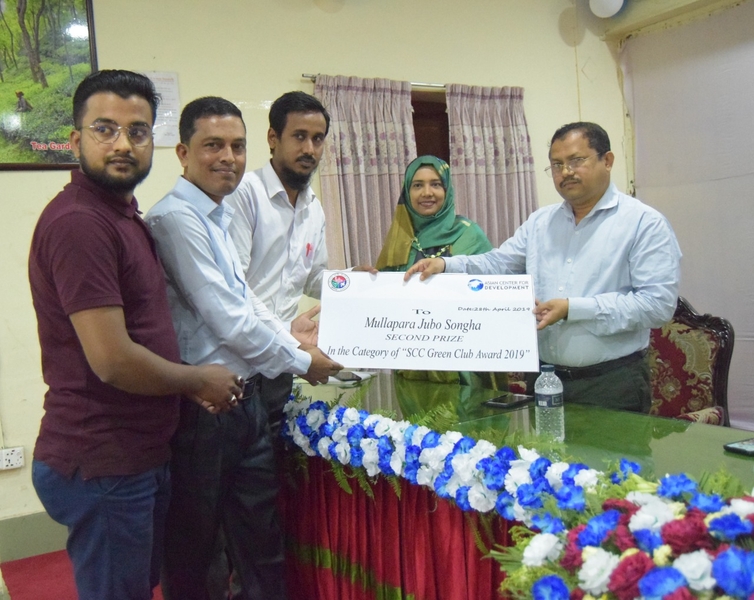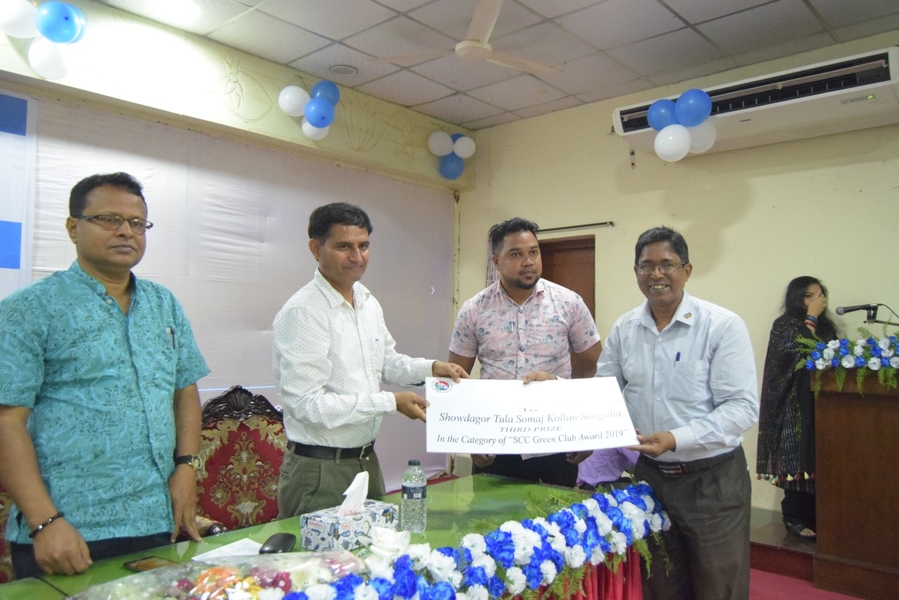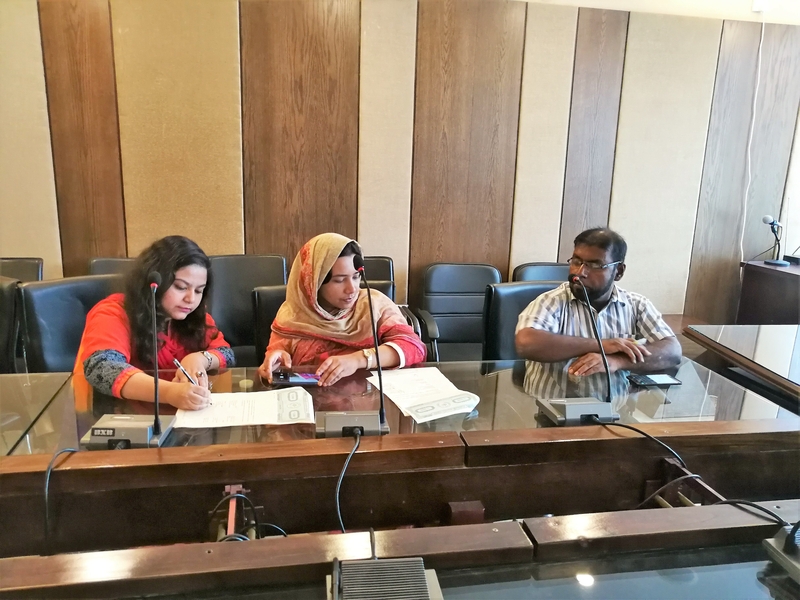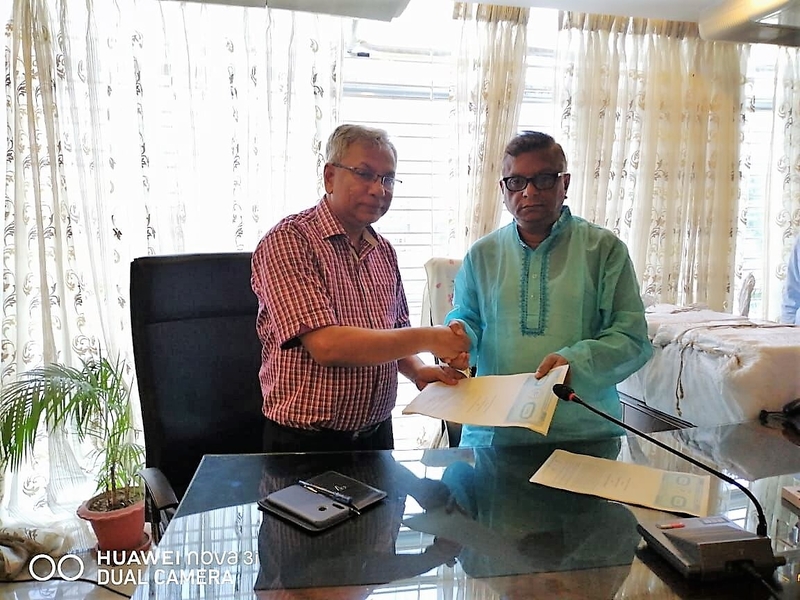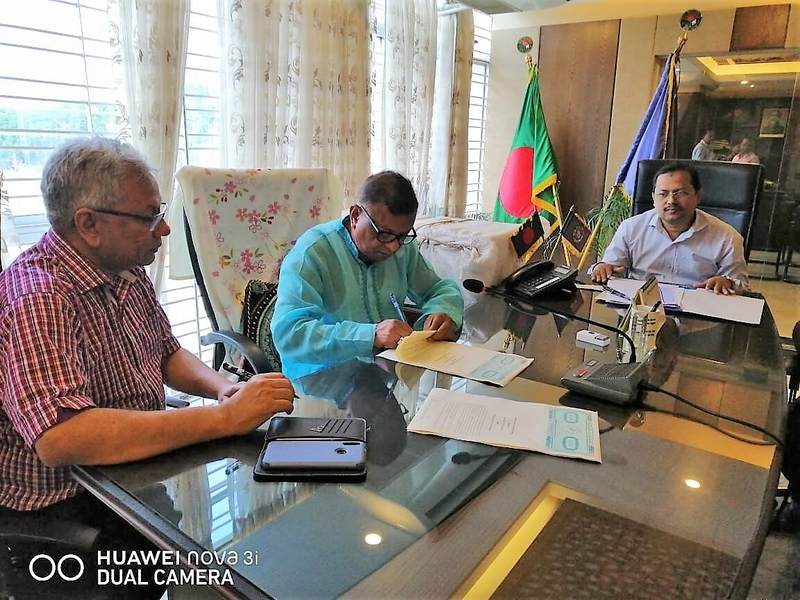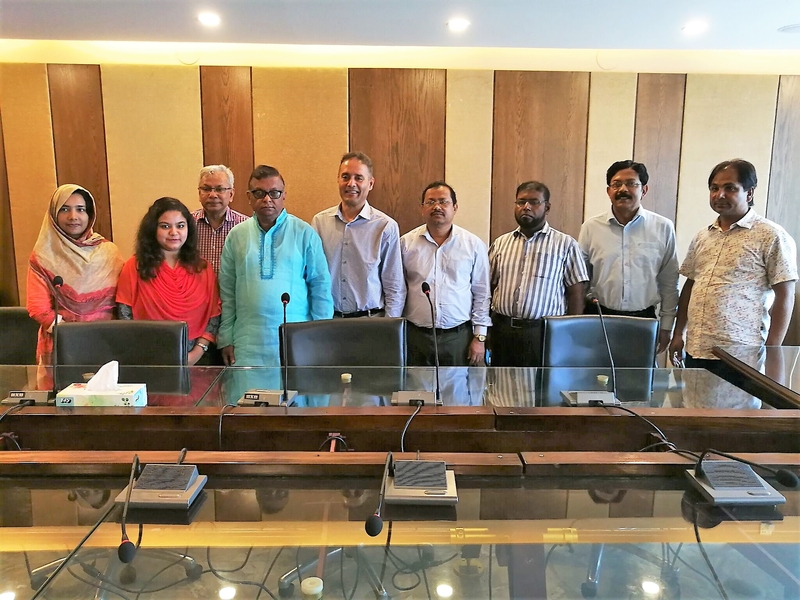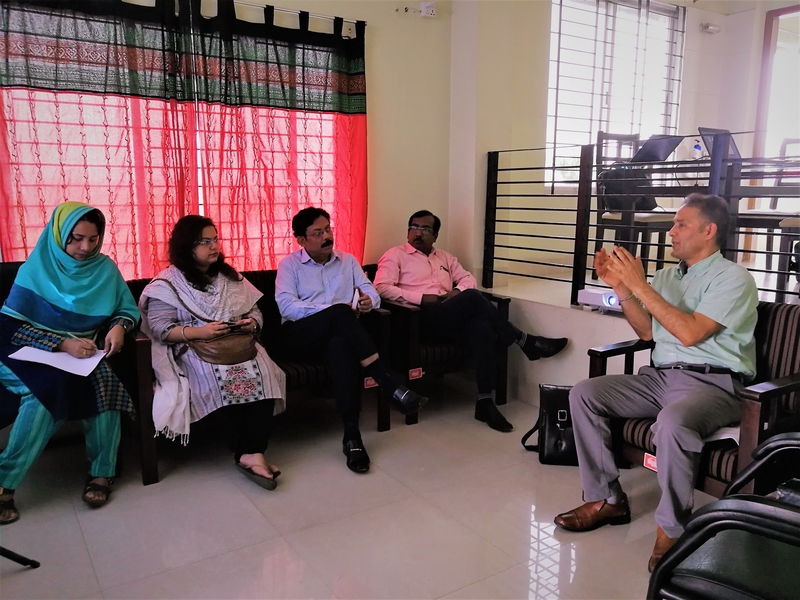Measuring and Monitoring of Public Perception on Implementation of INDC Pledges by Bangladesh, India, Maldives, Nepal, Pakistan and Sri Lanka
As a part of the UNFCCC negotiation, all countries were asked to provide a global commitment to reduce carbon emission while the world searches and reach an agreement on mitigation and adaptation measures. Bangladesh, for example, pledged to reduce 5% of its emission from a business as usual (BAU) scenario, while it has agreed to reduce a further 15% from the BAU scenario with the help from development partners. India pledged to reduce its carbon intensity of GDP between 20-25% by 2020 from its 2005 level. Maldives agreed to voluntarily reduce its carbon footprint by 10% over the BAU scenario by 2030. These public pledges by the governments to the global communities need to be monitored but as yet no mechanism has been established for this. In this situation, it is important to monitor the public pledges of the governments from the viewpoint of public perceptions. This will help countries to live up to their publicly stated goals while the global community works towards establishing a mechanism to monitoring these.
The objectives of this study are:
a. Examine the INDC pledges on mitigation by the governments of Bangladesh, India, Maldives and Nepal with respect to changes in public policies.
b. Establish a public perception measurement strategy to make the countries accountable to their own voluntary pledges.
c. Establish a methodology for monitoring public perception in terms of attainment of both voluntary pledges and globally-assisted pledges towards a reduction of carbon emission.
Study Team
Dr. A.K. Enamul Haque
Dr. Pranab Mukhapadhay
Dr. Mani Nepal
Ms. Fathimath Shafeeqa
Dr. Heman Lohano
Mr. Shamen Vidanage
Research Assistants
Ashraf Uddin Mian
Sabrina Eusa
Report Link: Presentation Power point link (Bangla) , Executive Summary (English), Executive Summary (Bangla), Full Report in English








